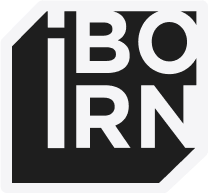It is common among company owners and managers to think that the digital transformation process is completed simply by implementing an ERP system. But, this is a misconception, as that’s just the beginning. The question “And, now what?” follows logically.
Better storing and organization of data guides companies and allows them to improve their decision-making process, even when it comes to daily decisions. Companies from all over the world have invested millions in ERP systems in the last two decades, but not all of them have managed to find an effective way to use the vast amounts of operational and financial data that they have gathered.
This is the right time for the implementation of an intelligent ERP system that uses machine learning and advanced data analytics, or to put it differently, allows the integration of Business Intelligence in your existing ERP system.

The implementation of an intelligent ERP (iERP) is a must, organizations need to develop plans for its adoption and prepare their employees.
In this article, we want to focus on three key points that you’ll need to consider when incorporating Business Intelligence into your ERP system.
-
Business Intelligence is not the same as reporting. Reports and reporting have always been an integral part of ERP systems. But, in the past, most of this information was quite superficial and focused on supporting operations rather than analysis or assistance in the decision-making process. For example, a report of open purchase orders is much less significant than the predictive analysis that estimates future purchase needs. In order to effectively leverage business intelligence, companies have to look beyond the fancy reports that end-users request. Instead, it’s necessary to understand how information is collected and stored in the system and then transformed into meaningful decision-making tools.
-
Flexibility is the key. Different organizations have different ways of analyzing and using data. Plus, the needs and expectations of a particular company evolve over time. Therefore, it is essential that companies look for flexible Business Intelligence solutions on top of the business management software they have implemented. ERP systems that provide multiple ways to analyze and present data are more likely to enable the organization to grow and evolve together with its needs. Organizations also have to look for flexibility in terms of how data is delivered. Traditional reports, executive dashboards, mobile applications are only some of the possible ways to deliver data.
-
Define the needs of Business Intelligence. To carry out the two previous points, a company has to define the requirements related to business intelligence. Although traditional requirements focus on how transactional business processes should work, business intelligence needs require a definition from a different perspective. For example, let’s say that you’re looking to increase organizational performance. Besides focusing on how the work has been completed, intelligent ERP (iERP) project teams must also decide how the information will be used and how decisions will be made. For example, you can define the expected demand, how inventory decisions will be made. It is also possible to define other, more analytical processes, like the process for making decisions regarding the inventory.
Differences
The differences between the new intelligent ERP (iERP) and the previous generation of ERP can be summarized in the following points:

ERP applications are systems designed to automate and optimize business processes, collecting data on various aspects of the business, including administrative details, transactions, and operations. These processes manage resources that include some or all of the following: people, finances, capital, materials, suppliers, manufacturing, supply chains, customers, products, projects, contracts, orders, and facilities. The software can be specific to a particular industry or designed to be applied more widely to a group of industries.
An ERP package or a set of ERP applications can be implemented to manage the entire company and help it meet the business or organizational objectives.
The package is integrated through a common user interface (UI) by accessing a common data set (logical or physical) with common definitions to coordinate end-to-end processes.
The intelligent ERP (iERP) applications are ERP applications or suites that use machine learning and advanced analysis based on a large set of curated data to predict, track, learn, analyze, inform and manage these resources and business processes. They offer an assisted and conversational user experience, by automating a set of repeatable high-volume tasks and increasing (through human-machine interaction) the performance of less frequent and more innovative tasks. They are able to process, analyze and act on massive volumes of data in real-time, using different technologies.
Conclusion
Still, intelligent ERP is not something entirely new, ERP systems have been around for a while, but it gives a lot of opportunities for progress and its full potential is yet to be realized. Most ERP systems aren’t ready for the future which is why users are looking for solutions that will lead their businesses towards smarter, more flexible ERP solutions that will need to be integrated with their other core systems.

If you’re looking for new features and integrations of your existing ERP just to make it intelligent, we have the solution. At iborn.net, we pride ourselves on being experts in integrating new systems into existing ones by adding new functionalities in order to meet your needs.







